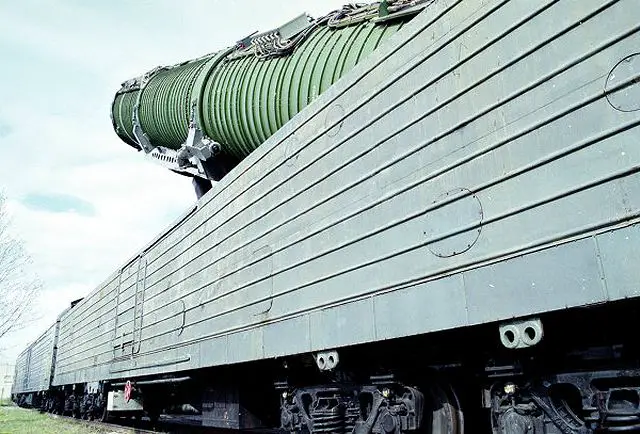Breaking news
Russia has started new train ICBM Intercontinental ballistic missile which could be ready 2020 25041.
| a | |||
Defence & Security News - Russia |
|||
| |
|||
| Thursday, April 25, 2013, 08:42 AM | |||
| Russia has started a new train ICBM Intercontinental ballistic missile which could be ready for 2020. | |||
Russia's Moscow Institute of Thermal Technology has started an R&D
program to develop new rail-mobile intercontinental ballistic missile
(ICBM) systems, said the Deputy Defense Minister Yury Borisov. The work
is in the initial stages, he said, adding the cost of the program has
yet to be determined. He provided no timeframe for the program. |
|||
 In the past, Russia has developped an ICBM (Intercontinental Ballistic Misile) RT-23 (SS-24 Scalpe) mounted on a railcar. |
|||
| The
Moscow Institute of Thermal Technology is the developer of the Bulava
(submarine-based) and Topol and Yars (land-based) ballistic missile systems. |
|||



















